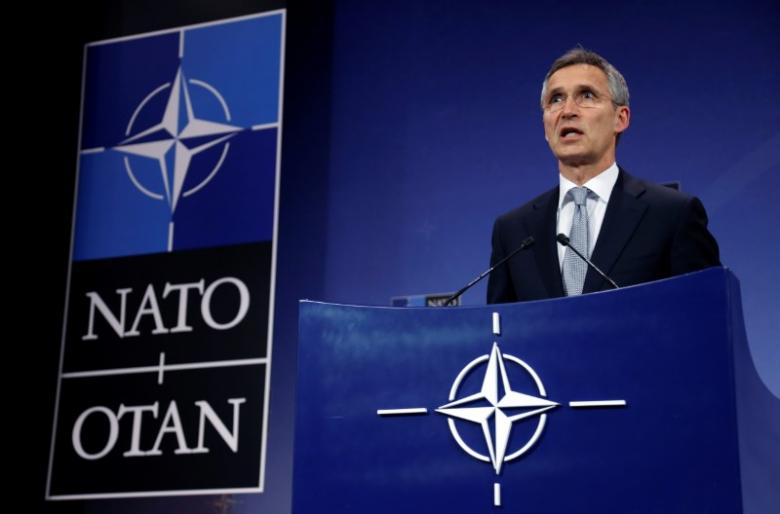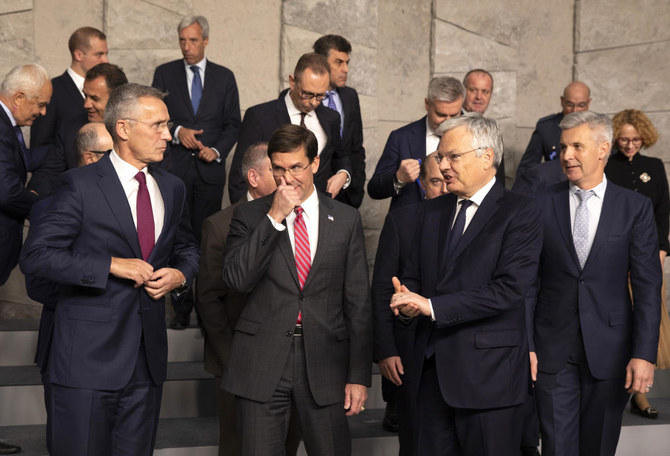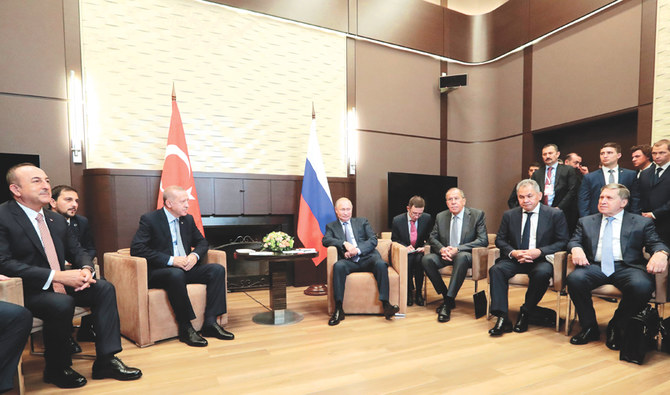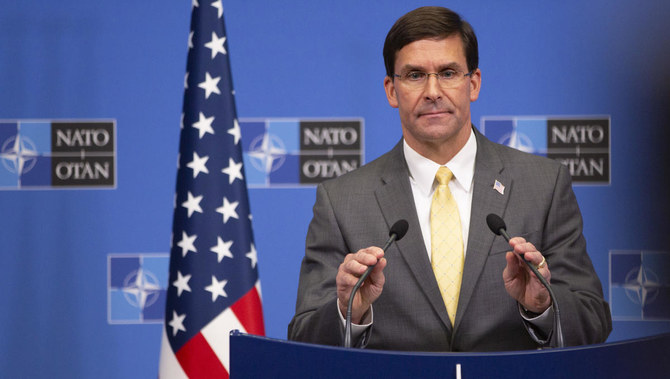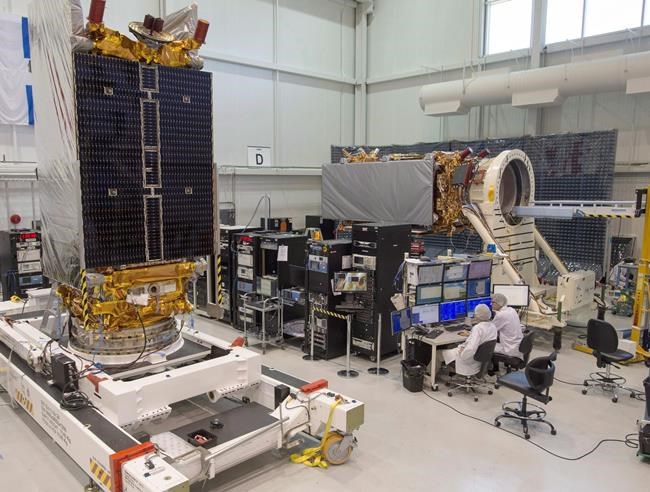angelburst29
The Living Force
NATO, US military buildup in Black, Baltic Sea is dangerous, Russian senator warns

© EPA-EFE/Toms Kalnins
MINSK, October 8, 2019 - NATO and US growing presence in the Black and Baltic Sea is dangerous and it is necessary to work out rules of behavior in these regions, Chairman of the Russian Federation Council's temporary Commission on Information Policy and Communications Alexei Pushkov said on Tuesday.
Speaking at the Minsk Dialogue forum "European security: Stepping back from the brink," Pushkov said: "We see that today the plans on increasing NATO presence in the Black Sea are being drawn up, and active maneuvers are carried out not far away from Kaliningrad. There have been incidents when Russian military jets flew rather close from NATO warships. This is a rather dangerous situation."
The Senator emphasized that Moscow needs to agree with NATO on the rules of behavior in these regions. "If we were able to agree with the Americans in Syria, then I don’t see any reasons preventing us from coming to terms with the US on the Baltic region and the Black Sea."
US trying to draw Bosnia and Herzegovina into NATO, says Lavrov

© AP Photo/Susan Walsh
SOCHI, October 2, 2019 - Washington and some of its European supporters have taken the course towards drawing Bosnia and Herzegovina into NATO, violating the corresponding resolution of the UN Security Council, Russian Foreign Minister Sergey Lavrov said on Wednesday, addressing the 16th annual session of the Valdai Discussion Club.
"The US and some leading western European states demand that accountable Bosnian and some Croatian parties took the course for the creation of a unitary state in Bosnia," he noted. "The goal is simple — to draw Bosnia into NATO. And for this purpose they resort to various maneuvers, including revision of the UN Security Council’s resolution."
According to the constitution suggested in the General Framework Agreement for Peace in Bosnia and Herzegovina (Dayton Agreement) signed on December 14, 1995 in Paris, Bosnia and Herzegovina consists of two entities: the Federation of Bosnia and Herzegovina (51% of the country’s territory) and Republika Srpska (49% of the country’s territory), as well as Brcko District.
Pressed by Trump over defense, Germany says can pay more for NATO running costs
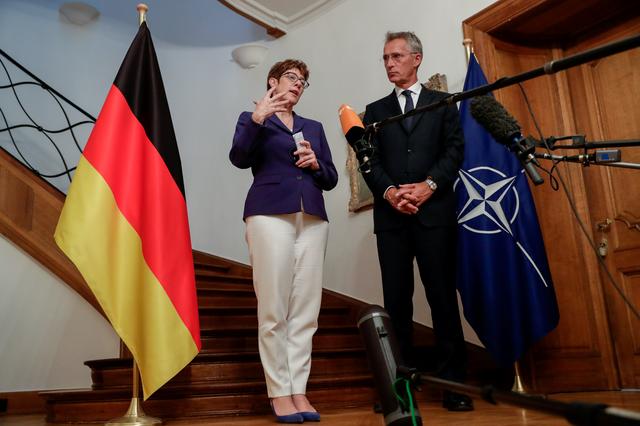
Germany is willing to contribute more to NATO's running costs as long as other allies also step up to help reduce the United States' share of funding, German Defense Minister Annegret Kramp-Karrenbauer said on Friday.
President Donald Trump has long accused European allies, especially Germany, the biggest economy in Europe, of taking U.S. security guarantees for granted and says they need to spend much more on their own defense.
With a meeting of NATO leaders looming in December, some allies now see reform of financing for the U.S.-led military alliance as a way to preempt another round of criticism from Trump and show that they are listening to his concerns.
At some $2.5 billion a year, the budget for North Atlantic Treaty Organization headquarters, international staff and the limited number of military assets under NATO command is a small sum compared to the hundreds of billions of dollars that allies spend on their armed forces each year.
Under a proposal now being considered by NATO, the U.S. contribution to the alliance’s annual budget would fall to 16% from the current 22%, while Germany’s would rise, also to 16% from 14.8%, from 2021. Other countries would also pay more.
“We are ready to provide more money, as long as it is the same contribution as the United States,” Kramp-Karrenbauer told reporters during a trip to Latvia to meet NATO soldiers there.
Comment: Just out of curiosity and to refresh my memory, I remember that Secretary General Jens Stoltenberg serves a 4 year term and that it was set to end somewhere in 2018-2019? I still haven't come across the actual date in 2019 but did locate an interesting article, back-dated to 2016. What surprised me the most - the average salary paid for Stoltenberg's position. The average middle-class American with a College or University degree brings home a salary under $80,000 a year (after taxes). What does Stoltenberg do - to earn that kind of money? (I can just picture him - living on "my income" for a year ... he would hemorrhage in a month and go crazy!)
David Cameron tipped for Nato Secretary General role
29 December 2016 - David Cameron is being considered for the role of Nato Secretary General, according to reports.
The former Primer Minister is understood to be the most likely British contender for which comes tax-free salary of €260,624 (£222,019).
Last month she (Theresa May) met with Jens Stoltenberg in Downing Street for the first time since Mr Trump's election. Mr Stoltenberg is expected to finish his term in either 2018 or 2019.
Britain has held the position of Nato Secretary General three times, with Lord Ismay serving as the first general secretary from 1952 to 1957, then Lord Carrington from 1984 to 1988 and Lord Robertson from 1999 to 2003.
Friends close to Mr Cameron have said it is crucial for the UK to get the Nato job if it wants to "play a greater role in European security and to show EU allies that we want to play a constructive post-Brexit role on the Continent".
One told the newspaper: "The key at this stage is to flag high-level interest in leader level conversations and to show that our eventual candidate is visible and acceptable to everyone.
Mr Stoltenberg started his four-year term in 2014 and could be replaced in 2018 through closed informal diplomatic discussions between allies.

© EPA-EFE/Toms Kalnins
MINSK, October 8, 2019 - NATO and US growing presence in the Black and Baltic Sea is dangerous and it is necessary to work out rules of behavior in these regions, Chairman of the Russian Federation Council's temporary Commission on Information Policy and Communications Alexei Pushkov said on Tuesday.
Speaking at the Minsk Dialogue forum "European security: Stepping back from the brink," Pushkov said: "We see that today the plans on increasing NATO presence in the Black Sea are being drawn up, and active maneuvers are carried out not far away from Kaliningrad. There have been incidents when Russian military jets flew rather close from NATO warships. This is a rather dangerous situation."
The Senator emphasized that Moscow needs to agree with NATO on the rules of behavior in these regions. "If we were able to agree with the Americans in Syria, then I don’t see any reasons preventing us from coming to terms with the US on the Baltic region and the Black Sea."
According to Pushkov, earlier this increased activity of the North Atlantic Alliance had not been seen in the Black and Baltic Seas. In the past, Russia and NATO used to have understanding about careful behavior in these waters, then the situation changed after the Ukrainian crisis, he stressed.
Pushkov recalled that Russia and the US agreed on preventing air incidents in Syria. "Given that both Russian and US aircraft are there, we made a decision to prevent this incident. Unfortunately, we don’t have these agreements with the North Atlantic Alliance on the Baltic and the Black Sea."
The extent of US and NATO warships’ presence in the Black Sea is unclear, Pushkov noted. He recalled that the notorious Kerch incident in November 2018, which was considered as a reason for NATO’s military buildup in the Black Sea, was later recognized, including by Kiev, as a provocation by former Ukrainian President Pyotr Poroshenko ahead of elections.
"They violated the border of Russia and Russian territorial waters, and now this issue is closed and Ukrainian sailors have returned to Ukraine," Pushkov said. According to him, although "some signs of a thaw are seen in relations between Moscow and Kiev, there is no progress on the Black Sea waters.".
US trying to draw Bosnia and Herzegovina into NATO, says Lavrov

© AP Photo/Susan Walsh
SOCHI, October 2, 2019 - Washington and some of its European supporters have taken the course towards drawing Bosnia and Herzegovina into NATO, violating the corresponding resolution of the UN Security Council, Russian Foreign Minister Sergey Lavrov said on Wednesday, addressing the 16th annual session of the Valdai Discussion Club.
"The US and some leading western European states demand that accountable Bosnian and some Croatian parties took the course for the creation of a unitary state in Bosnia," he noted. "The goal is simple — to draw Bosnia into NATO. And for this purpose they resort to various maneuvers, including revision of the UN Security Council’s resolution."
According to the constitution suggested in the General Framework Agreement for Peace in Bosnia and Herzegovina (Dayton Agreement) signed on December 14, 1995 in Paris, Bosnia and Herzegovina consists of two entities: the Federation of Bosnia and Herzegovina (51% of the country’s territory) and Republika Srpska (49% of the country’s territory), as well as Brcko District.
Pressed by Trump over defense, Germany says can pay more for NATO running costs
Germany is willing to contribute more to NATO's running costs as long as other allies also step up to help reduce the United States' share of funding, German Defense Minister Annegret Kramp-Karrenbauer said on Friday.
President Donald Trump has long accused European allies, especially Germany, the biggest economy in Europe, of taking U.S. security guarantees for granted and says they need to spend much more on their own defense.
With a meeting of NATO leaders looming in December, some allies now see reform of financing for the U.S.-led military alliance as a way to preempt another round of criticism from Trump and show that they are listening to his concerns.
At some $2.5 billion a year, the budget for North Atlantic Treaty Organization headquarters, international staff and the limited number of military assets under NATO command is a small sum compared to the hundreds of billions of dollars that allies spend on their armed forces each year.
Under a proposal now being considered by NATO, the U.S. contribution to the alliance’s annual budget would fall to 16% from the current 22%, while Germany’s would rise, also to 16% from 14.8%, from 2021. Other countries would also pay more.
“We are ready to provide more money, as long as it is the same contribution as the United States,” Kramp-Karrenbauer told reporters during a trip to Latvia to meet NATO soldiers there.
Comment: Just out of curiosity and to refresh my memory, I remember that Secretary General Jens Stoltenberg serves a 4 year term and that it was set to end somewhere in 2018-2019? I still haven't come across the actual date in 2019 but did locate an interesting article, back-dated to 2016. What surprised me the most - the average salary paid for Stoltenberg's position. The average middle-class American with a College or University degree brings home a salary under $80,000 a year (after taxes). What does Stoltenberg do - to earn that kind of money? (I can just picture him - living on "my income" for a year ... he would hemorrhage in a month and go crazy!)
David Cameron tipped for Nato Secretary General role
29 December 2016 - David Cameron is being considered for the role of Nato Secretary General, according to reports.
The former Primer Minister is understood to be the most likely British contender for which comes tax-free salary of €260,624 (£222,019).
Last month she (Theresa May) met with Jens Stoltenberg in Downing Street for the first time since Mr Trump's election. Mr Stoltenberg is expected to finish his term in either 2018 or 2019.
Britain has held the position of Nato Secretary General three times, with Lord Ismay serving as the first general secretary from 1952 to 1957, then Lord Carrington from 1984 to 1988 and Lord Robertson from 1999 to 2003.
Friends close to Mr Cameron have said it is crucial for the UK to get the Nato job if it wants to "play a greater role in European security and to show EU allies that we want to play a constructive post-Brexit role on the Continent".
One told the newspaper: "The key at this stage is to flag high-level interest in leader level conversations and to show that our eventual candidate is visible and acceptable to everyone.
Mr Stoltenberg started his four-year term in 2014 and could be replaced in 2018 through closed informal diplomatic discussions between allies.

